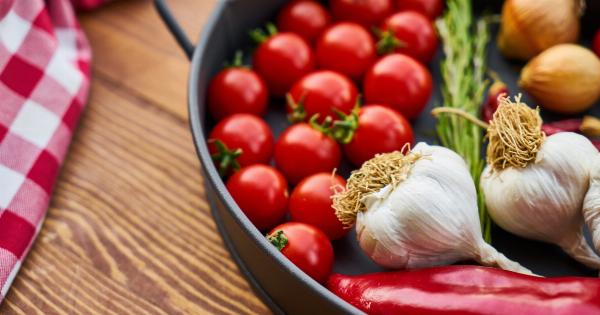Preeclampsia is one of the common complications that pregnant women face during their pregnancy. This serious condition is marked by high blood pressure and damage to organs, affecting both the mother and baby.
Although the definitive cause of preeclampsia is unknown, poor diet and lifestyle choices are significant risk factors for the condition. Studies have suggested that following a Mediterranean diet, rich in nutrient-dense foods, may help prevent preeclampsia.
What is a Mediterranean diet?
The Mediterranean diet is a way of eating that is common in countries such as Greece, Italy, Spain, and Portugal. It primarily focuses on consuming fresh fruits and vegetables, whole grains, fish, nuts, and olive oil.
The diet also includes moderate consumption of red wine and limited intake of meats, dairy, and sweets.
How can a Mediterranean diet help prevent preeclampsia?
Research has found that consuming a diet rich in fruits, vegetables, and healthy fats can help reduce the risk of developing preeclampsia during pregnancy.
The Mediterranean diet, in particular, has been linked to a lower incidence of the condition due to its anti-inflammatory properties and higher intake of nutrients that are crucial for fetal development.
Omega-3 fatty acids
A Mediterranean diet is rich in omega-3 fatty acids, which are essential fatty acids that the body cannot produce on its own.
These fatty acids help reduce inflammation and maintain healthy blood vessels, reducing the risk of developing hypertension and preeclampsia. Consuming foods such as salmon, sardines, chia seeds, and flaxseeds can provide a good source of omega-3 fatty acids.
Antioxidants
Fruits and vegetables are the primary sources of antioxidants in the diet. Antioxidants help reduce inflammation and protect the body from oxidative stress caused by free radicals.
Pregnant women following a Mediterranean diet have higher levels of antioxidants in their blood, which can help reduce the risk of preeclampsia.
Calcium and magnesium
Calcium and magnesium are essential minerals for fetal development and can help regulate blood pressure in pregnant women.
Consuming dairy products, leafy greens, nuts, and seeds, all common components of a Mediterranean diet, can provide an adequate source of these important minerals.
Vitamin D
Vitamin D is crucial for bone and immune system health, and research has also suggested that it may help prevent preeclampsia.
Foods such as fatty fish and fortified dairy products can provide a source of vitamin D, but the best source is exposure to sunlight. People living in countries with limited sunlight exposure should take vitamin D supplements.
Fiber
Whole grains, fruits, and vegetables are rich sources of fiber, which promote healthy digestion and can help reduce the risk of hypertension and preeclampsia.
Consuming a Mediterranean diet that is rich in these fiber sources has shown to be more beneficial in reducing blood pressure than a low-fiber diet.
Conclusion
A Mediterranean diet is a great option for pregnant women looking for a healthy and nutrient-dense way to eat. While it is not a guarantee against preeclampsia, numerous studies have linked this way of eating to lower rates of the condition.
The Mediterranean diet provides a wide range of essential nutrients, including omega-3 fatty acids, antioxidants, calcium and magnesium, vitamin D, and fiber, all of which contribute to a healthy pregnancy and reduce the risk of complications.






























